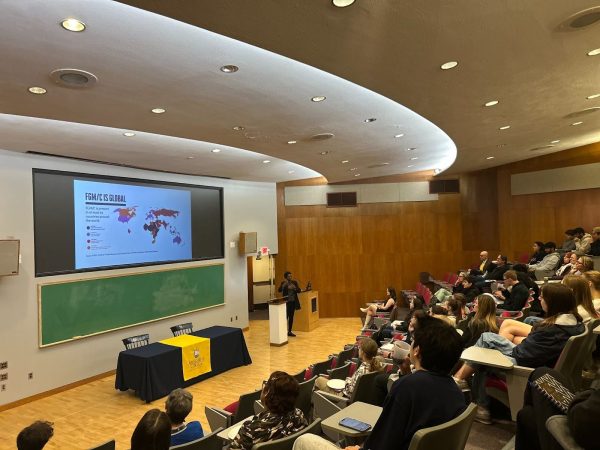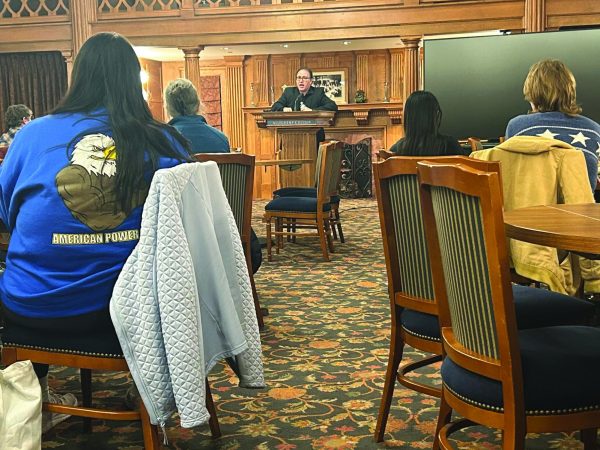Symposium humanizes immigrant experience
Brian Miller, visiting associate professor of history, traveled with a group of 18 students to Denison University for a symposium entitled, “Crossing Borders: Refugees, Youth, and Higher Education,” on Friday, Nov. 11. The symposium was attended by students from Allegheny College, Denison University and Kenyon College.
The purpose of the symposium was to create a place where refugees could share their own experiences and stories, according to Miller.
“So much of the faults [and] misinformation that surrounds this issue can be dispelled through education,” Miller said
The majority of the students that traveled to the symposium are currently in Miller’s history class, “Migration and the ‘New Europe.’”
“So much of the history that is often written about refugees doesn’t include their voices, their words,” Miller said. “The research project for this course was to actually use the voices of refugees to disrupt these larger histories.”
The symposium was split into two panels. The first was led by community leaders from Columbus, Ohio, who spoke about their work with the Somali and Bhutanese-Nepali communities in Columbus and the different structures and support they provide for refugees.
The second panel was led by four refugees who are currently in higher education at either Denison University or The Ohio State University.
“Participation in the symposium is just an example for the students here of how those voices will change the narrative of perhaps what we had even been learning in the classroom,” Miller said.
Miller said it offered a great contact experience for students to learn about refugee issues.
“Americans tend to get a pretty singular narrative of immigration. We get a pretty stereotyped idea of what immigrants and refugees are,” said John Horan, ’18. “Seeing actual people, hearing their stories and hearing their fears —it’s interesting and brings it down to earth for someone like me. … I’m not an immigrant or refugee. … It makes me understand what it’s really like.”
Horan is one of the students taking Miller’s history class and said the symposium gave him an understanding beyond what the classroom is able to teach him.
Lisa Taapken, ’17, is also in Miller’s class and attended the symposium. Taapken had a more unique experience than her peers in that she is an immigrant herself. She came to the U.S. from Holland with her parents at the age of 10.
“Because I actually am an immigrant … it was easy to relate to … stories, like being thrown into the American public school system and not understanding, like what is an AP class,” Taapken said. “Not knowing and then having to figure it out and being a guinea pig and being the tie to the American community and the European community, playing that role for your parents. My experience, being Dutch, was very different from, say, a Cameroonian refugee, but it was pretty universal.”
Taapken said it was important for people to understand the nuanced experience of being a refugee or immigrant.
“These people come to this country, but it’s not a seamless experience. There are cultural differences that are specific to different cultures,” Taapken said. “People talk about refugees as being this threat to American society, but they’re really not that different. They’re really easy to relate to.”
Miller said that the website will be a place for the public to be able to understand that there is no binary division. He said that the more the migrant experience is humanized, people will be able to understand their personal stories, and the fear will decrease.
“It’s important to see the very humanitarian side of it, actually seeing these people and hearing their perspectives.”
Miller intends to continue the work started in this course with the development of a digital humanities program and future courses at Allegheny. He plans to teach a class where students will have to conduct oral histories with refugees in Erie and Pittsburgh, Pennsylvania, and then upload these histories to a website that will eventually develop as a database of information.







